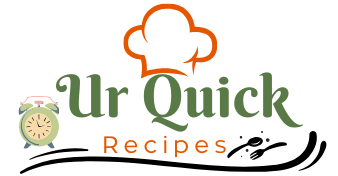Eggs and cottage cheese are two incredibly nutritious and versatile foods that can play a key role in a balanced diet. Packed with high-quality protein, essential vitamins, and minerals, these foods offer a variety of health benefits, making them a popular choice for many looking to improve their overall well-being. Not only are they great for building and repairing muscle, but they also provide sustained energy, promote healthy skin, and support weight management.
Table of Contents
Nutritional Benefits of Eggs and Cottage Cheese
Protein Content Comparison
Eggs and cottage cheese are both protein powerhouses, making them a perfect pair for anyone focused on muscle growth or weight management.
- Eggs: A single large egg provides approximately 6 grams of protein and essential nutrients like vitamin D and choline, which support brain and bone health. Learn more about the nutritional value of eggs from the USDA Food Data Central.
- Cottage Cheese: This creamy delight offers about 14 grams of protein per half-cup and is rich in calcium and B vitamins. For more information on its health benefits, visit the National Institutes of Health (NIH) – Calcium and Bone Health.
Together, these two foods can provide a balanced protein source with both fast- and slow-digesting proteins, ideal for workouts, meal prep, or snacking.
Vitamins and Minerals
Both foods are nutrient-dense, offering a range of vitamins and minerals:
- Eggs are packed with vitamin D, vitamin A, and choline, which are essential for brain health, immune function, and eye health.
- Cottage Cheese contributes calcium and phosphorus for strong bones and teeth. It also provides B vitamins like riboflavin and B12, which help with energy production.
By combining eggs and cottage cheese, you get a nutrient-rich dish that supports overall health.
Role in Muscle Building and Recovery
Cottage cheese’s slow-digesting protein (casein) provides a steady release of amino acids, perfect for overnight muscle recovery. Meanwhile, eggs provide instant energy with their mix of proteins and healthy fats. This makes the combo ideal for athletes, bodybuilders, or anyone with an active lifestyle.
Eggs and Cottage Cheese in Weight Loss Diets
Low-Carb Advantages
For those following low-carb or keto diets, eggs and cottage cheese are excellent options:
- Eggs: Contain virtually no carbs, making them a go-to food for energy without spiking blood sugar.
- Cottage Cheese: While slightly higher in carbs (about 4 grams per half-cup), its protein and fat content compensate by keeping you satiated for longer.
Together, they offer a filling, low-carb meal that can help curb cravings.
How They Keep You Full Longer
Eggs are rich in healthy fats, while cottage cheese is high in protein. These nutrients work together to slow digestion, reduce hunger, and prevent overeating. Incorporating them into your meals can help manage appetite and keep you feeling satisfied for hour
Calorie Count
If you’re calorie-conscious, this pairing works well:
- One large egg: About 70 calories
- Half-cup of cottage cheese: Around 110 calories (depending on fat content)
This totals just 180 calories for a high-protein, low-calorie meal or snack.
For a creative twist, try pairing your protein-rich dishes with something flavorful, like our recipe for a smoked beef sausage. This makes for a satisfying breakfast or snack that’s packed with nutrients.
Scrambled Eggs with Cottage Cheese Recipe
Eggs and cottage cheese are staples for quick, nutrient-packed breakfasts:
Ingredients:
- 2 large eggs
- 1/4 cup cottage cheese (full-fat or low-fat depending on preference)
- 1 tbsp butter or olive oil
- Salt and pepper to taste
- Fresh herbs (optional, such as chives or parsley)
- A pinch of paprika or chili flakes (optional for a bit of spice)
Instructions:
- Prepare the eggs: Crack the eggs into a bowl, and beat them lightly with a fork until the yolks and whites are fully combined.
- Cook the eggs: Heat the butter or olive oil in a non-stick skillet over medium heat. Once melted and hot, pour in the beaten eggs. Let them cook for about 30 seconds, then gently stir with a spatula.
- Add cottage cheese: As the eggs begin to set, add the cottage cheese to the skillet and continue stirring to combine. The cottage cheese will melt slightly and create a creamy texture in the eggs.
- Season: Season with salt, pepper, and optional paprika or chili flakes for extra flavor. Continue cooking until the eggs are fully cooked, but still soft and creamy.
- Garnish and serve: Sprinkle with fresh herbs for added freshness and color, and serve immediately.
This scrambled eggs with cottage cheese recipe is a quick and easy way to enjoy a high-protein meal that supports both muscle growth and weight loss. Enjoy it on its own or pair it with a side of vegetables or whole grain toast for a more filling breakfast.
If you’re looking for inspiration, consider our take on the sausage, egg, and cheese croissant. It’s a hearty, on-the-go breakfast option that pairs well with lighter sides like fresh vegetables or fruit.
Health Benefits of Combining Eggs and Cottage Cheese
Boosting Energy
Combining eggs and cottage cheese creates a nutrient-rich meal that provides both immediate and sustained energy:
- Eggs contain healthy fats and protein, which offer a quick energy boost while keeping you satisfied.
- Cottage Cheese delivers slow-digesting proteins and carbs that help maintain energy levels throughout the day.
This pairing is ideal for busy mornings, pre-workout meals, or any time you need sustained energy.
Ideal for Post-Workout Meals
Eggs and cottage cheese work exceptionally well for muscle recovery:
- After exercise, eggs provide the necessary amino acids to repair and build muscle.
- Cottage cheese replenishes glycogen stores while its casein protein supports overnight recovery.
A post-workout snack idea: Pair hard-boiled eggs with a small bowl of cottage cheese and fresh fruit for a balanced recovery meal.
Supporting Bone Health
Both foods contribute to stronger bones:
- Cottage Cheese is high in calcium and phosphorus, key nutrients for maintaining bone density.
- Eggs, particularly the yolks, are one of the few natural sources of vitamin D, which aids in calcium absorption.
Consuming these two together supports overall bone health, especially for individuals at risk of osteoporosis.

Cottage Cheese vs. Other Cheeses with Eggs
Comparing Cottage Cheese to Cheddar or Feta
Cottage cheese stands out as a healthier option when paired with eggs:
- Cheddar Cheese: High in fat and calories, making it less ideal for weight loss or heart health.
- Feta Cheese: Lower in calories than cheddar but contains higher sodium levels.
- Cottage Cheese: Offers a lower calorie and sodium option while being rich in protein, making it the best choice for those prioritizing health.
If you enjoy exploring unique cheese options, you might also like our guide to blue cheese, which discusses its uses, flavors, and pairings.
Healthier Pairings
Pairing eggs with cottage cheese ensures you’re getting:
- Fewer unhealthy fats compared to cheddar.
- A lighter, creamier texture that complements eggs without overpowering them.
Taste and Texture Differences
Cottage cheese adds a light, creamy consistency to dishes, unlike cheddar’s sharpness or feta’s crumbliness. This makes it versatile for mixing into scrambled eggs, omelets, or baked goods.
High-Protein Diets with Eggs and Cottage Cheese
Benefits for Athletes
Eggs and cottage cheese are staples in high-protein diets, especially for athletes:
- They support muscle repair and growth.
- Their combination of fast- and slow-digesting proteins ensures sustained muscle recovery throughout the day and night.
Examples of High-Protein Meals
- Power Bowl: Scrambled eggs, cottage cheese, spinach, and roasted sweet potatoes.
- Protein Wrap: Whole-grain tortilla filled with cottage cheese, eggs, avocado, and grilled chicken.
Common Mistakes to Avoid
When incorporating eggs and cottage cheese into a high-protein diet, avoid these pitfalls:
- Overeating: While nutrient-dense, they’re still calorie-rich. Portion control is key.
- Ignoring Balance: Combine with vegetables, whole grains, or healthy fats for a complete meal.
Eggs and Cottage Cheese for Keto Diets
Why They’re Keto-Friendly
Both eggs and cottage cheese are staples of the keto diet due to their low-carb, high-fat, and high-protein profiles:
- Eggs contain less than 1 gram of carbs per serving and are an excellent source of healthy fats.
- Cottage Cheese, depending on the variety, has around 4 grams of carbs per half-cup while providing plenty of protein and fat to keep you in ketosis.
This combination helps meet daily macro goals without compromising flavor or versatility.
Recipes for Keto Lovers
Eggs and cottage cheese can be the foundation of many keto-friendly recipes:
- Keto Egg and Cheese Casserole: Combine eggs, cottage cheese, spinach, and shredded cheese, then bake for a hearty low-carb breakfast.
- Cottage Cheese Omelet: Use cottage cheese as a filling in an omelet with sautéed mushrooms and onions.
- Keto Snack Bowl: Mix cottage cheese, hard-boiled eggs, avocado slices, and a dash of olive oil for a simple, satisfying snack.
Nutritional Macros Breakdown
For keto enthusiasts, here’s how this combination stacks up:
- Egg (1 large): ~70 calories, <1g carbs, 5g fat, 6g protein.
- Cottage Cheese (½ cup): ~110 calories, 4g carbs, 5g fat, 14g protein.
Together, they provide a filling and balanced low-carb meal with approximately 180 calories, 5g carbs, 10g fat, and 20g protein.
How to Store and Serve Eggs and Cottage Cheese
Shelf Life and Freshness Tips
Storing eggs and cottage cheese correctly ensures they remain fresh and safe to consume:
- Eggs: Keep them refrigerated at a temperature below 40°F (4°C). They can last up to 3 weeks in the fridge.
- Cottage Cheese: Store in the refrigerator and consume within 5–7 days after opening. Always keep the container tightly sealed.
Best Ways to Store for Maximum Taste
- Eggs: Place them in the coldest part of the fridge (not the door) to prevent temperature fluctuations.
- Cottage Cheese: Store it upside-down in the fridge to create a vacuum seal, which helps preserve freshness longer.
Serving Ideas for Convenience
- Serve cottage cheese in a small bowl and top with diced boiled eggs, paprika, and parsley for a quick appetizer.
- Use a mason jar to layer scrambled eggs, cottage cheese, and vegetables for a grab-and-go breakfast.
Pairing this duo with a side of quick potato salad makes for a hearty and satisfying meal that’s perfect for summer picnics or family gatherings.
Possible Side Effects or Allergies
Lactose Intolerance with Cottage Cheese
For those with lactose intolerance, regular cottage cheese may cause digestive issues. However, lactose-free options are available and provide the same nutritional benefits.
Egg Allergies
Eggs are a common allergen, particularly in children. Symptoms include skin rashes, nausea, or difficulty breathing. If you’re allergic, consider substituting eggs with alternatives like tofu or chia seeds in recipes.
How to Substitute Ingredients
- Egg Substitutes: Use mashed avocado, silken tofu, or flaxseed meal as alternatives.
- Cottage Cheese Substitutes: Try plain Greek yogurt or ricotta cheese for similar textures and nutritional value.
FAQs About Eggs and Cottage Cheese
1. Can you eat eggs and cottage cheese together?
Yes, eggs and cottage cheese complement each other perfectly. They’re both high in protein, low in carbs, and versatile, making them a nutritious and delicious combination for meals or snacks
2. Are eggs and cottage cheese good for weight loss?
Absolutely! Eggs and cottage cheese are both low in calories and high in protein, which helps control hunger, boost metabolism, and support weight loss. They’re also great for low-carb diets like keto.
3. What are the health benefits of combining eggs and cottage cheese?
This pairing provides a balanced mix of fast- and slow-digesting proteins, essential vitamins (like vitamin D and calcium), and healthy fats, making it ideal for muscle recovery, bone health, and sustained energy.
4. Is cottage cheese better than other cheeses with eggs?
Cottage cheese is a healthier option compared to high-fat cheeses like cheddar or feta. It’s lower in calories and sodium while being higher in protein, making it a great choice for weight loss and overall health.
5. Can I eat eggs and cottage cheese on a keto diet?
Yes, both eggs and cottage cheese are keto-friendly due to their low-carb content. They can be included in various keto recipes, such as casseroles, omelets, or protein bowls.
Conclusion
Eggs and cottage cheese are a nutritional powerhouse duo that offers a variety of health benefits, including weight management, muscle building, and bone health. Their versatility in recipes, compatibility with various diets like keto, and easy preparation make them a staple for any healthy eating plan. Whether you’re looking for a quick breakfast, a satisfying snack, or a post-workout meal, this combination is a simple yet effective way to boost your protein intake and overall health. By adding these nutrient-rich foods to your diet, you can enjoy delicious meals while staying on track with your wellness goals.


1 thought on “Eggs and Cottage Cheese: Nutritional Benefits, Recipes, and Weight Loss Tips”